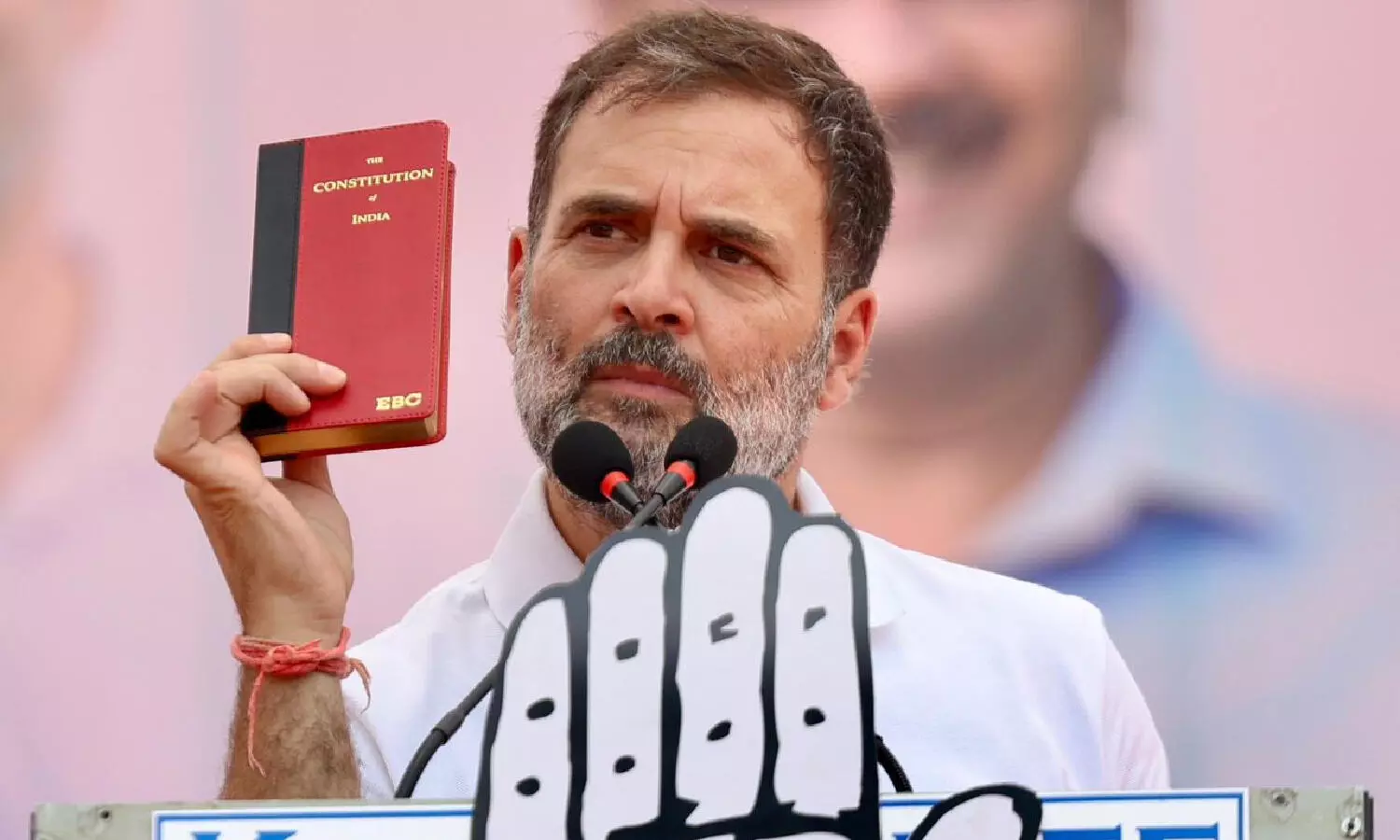Nyay for Equity: How Congress’ caste census will ensure social justice
Social justice means fair treatment and equitable status of all individuals and social groups within a society
By Irfan Aziz
Hyderabad: In contemporary politics, social justice means political philosophy and social science, the fair treatment and equitable status of all individuals and social groups within a society or state. The term also is used to refer to social, political, and economic institutions, laws, or policies that collectively afford such fairness and equity and is commonly applied to deliver fairness, equity, inclusion, self-determination, or other goals for currently or historically oppressed, exploited, or marginalized segments.
What is social fairness?
That includes fairness in healthcare, employment, housing, and more. In a socially just society, human rights are respected and discrimination is not allowed to flourish. A newer aspect of social justice emphasizes recognition and respect for diverse identities and perspectives.
Further, it focuses on achieving a more just distribution of resources and goods within society. A just society depends on access to essentials like shelter, food, medical care, and education. It isn’t enough for a society to invest in innovations or create new opportunities; society must also prioritize access.
If access is restricted based on factors like gender, race, or class, it leads to suffering for individuals, communities, and society as a whole.
India being a diverse country from language, to food habits, to cultures, to socio-economic structures of each state and union territory, poses challenges in designing an equitable model for every citizen or group or the society as a whole.
Post independence
After gaining independence in 1947, India faced immense hurdles due to its large population and the aftermath of British colonial exploitation. We were an underdeveloped country with almost 31 crore population to feed. 200 years of loot by Britishers had left us with nothing, and it was an uphill task to move a nation that had been plundered by British rule. Adding to our woes, the partition of India made us weaker and more vulnerable. Probably a ploy by the British to leave India in such a state that it wouldn’t rise again. They were instrumental in various ways to instigate the downfall of India as a state and were successful in achieving their objectives.
When India got its independence, the Congress government, under the leadership of the first Prime Minister Jawaharlal Nehru, implemented the Indian Constitution. In the preamble of the Indian Constitution, the idea of justice is firmly established. The Indian Constitution’s drafters made sure that justice was included because they understood the importance of establishing justice in a nation.
Article 14, 15, 16 & 17
The idea of justice enshrined in the preamble of the Indian constitution is also reflected in Articles 14, 15, 16, and 17. All of these articles are included in the third section of the constitution, which guarantees each citizen certain fundamental rights. The Indian Constitution explains three types of justice: Social Justice, Economic Justice, and Political Justice. The mention of ‘justice’ in the preamble intends not only to create an environment in which social, economic, and political justice is assured but also to work positively against any form of discrimination existing in society based on caste, community, race, religion, or otherwise.
Disrespect to constitution
The current BJP government at the center doesn’t follow the spirit of the constitution nor do they respect it. Therefore, atrocities and discrimination against marginalized sections such as the poor, underprivileged, economically backward, SC, ST, and other backward communities have increased significantly during their ten years of rule. Some examples I would like to highlight include the majority of government job vacancies not being filled, exam papers being leaked before the exams, and the selling or privatizing of public sectors to private companies. Essentially, it’s a method of depriving the marginalized sections of society of attaining equity with privileged sections, elites, and certain sections who have had the advantage since ancestry.
Caste discrimination a reality
Congress has been the most vocal and active champion of the progress of the backward and oppressed classes and castes over the last seven decades. However, caste discrimination is still a reality. The people belonging to the SC, ST, and OBC communities have not yet been able to catch up with the rest and are still left behind. While OBC, SC, and ST constitute nearly 70 percent of India’s population, their representation in high-ranking professions, services, and businesses is disproportionately low. No progressive modern society should tolerate such inequality or discrimination based on ancestry and the consequent denial of equal opportunity.
Nyay for Equity &Social Justice
Our Nyay for Equity and Social Justice is an elaborate framework that we promise to implement as part of our promise. There are 25 points in our manifesto, and one of the promises that we have made is that Congress will conduct a nationwide Socio-Economic and Caste Census to enumerate the castes and sub-castes and their socio-economic conditions. Based on the data, we will strengthen the agenda for affirmative action.
The writer is Irfan Aziz, All India Professional Congress, president of Secunderabad Chapter& Congress Manifesto Head from Telangana.
Disclaimer: The views and opinions expressed in the article are those of the author and do not reflect the official policy or position of NewsMeter.